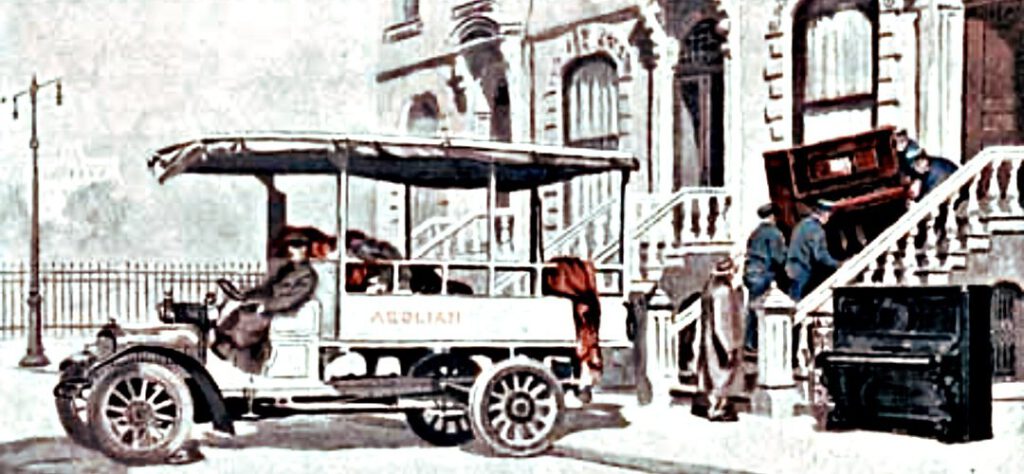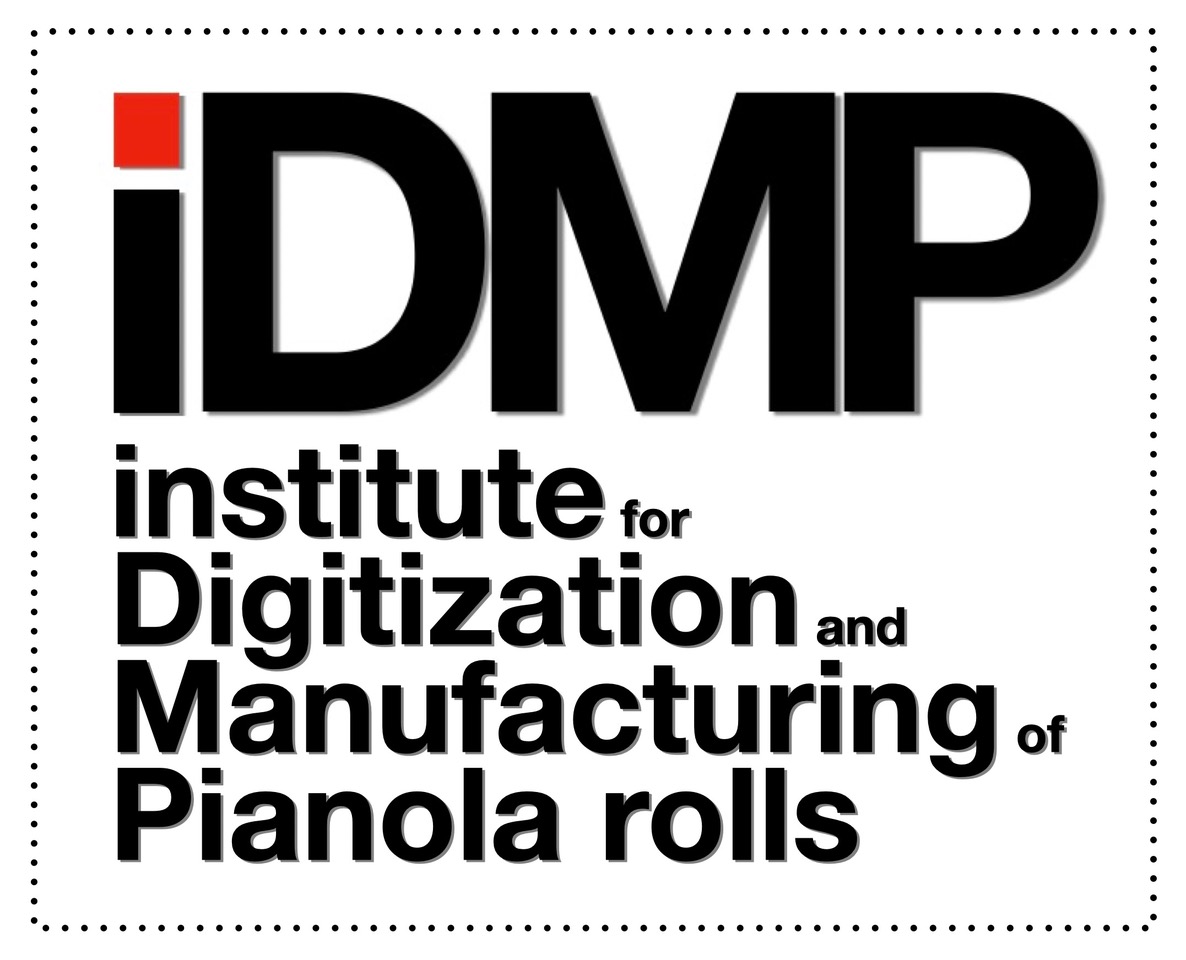Our offer for piano disposal!
We love pianos! And the environment. And that's why we offer a unique service.
Every piano deserves our appreciation. From a historical, musical and ecological perspective. In our blog post "How do I dispose of a piano?" we describe various options for disposing of a piano. Perhaps there is an option for you to find a good place for the piano. If all efforts have failed, or you do not have the means to take care of it, we are the right partner for you.

Even if, in many cases, recycling may be the only option, we will examine all our options to find a way of preserving the piano after all. If there is no other option for the piano, our offer for sustainable piano recycling is the most sensible decision. In this way, we return as many of the recyclable materials as possible to the cycle of use and help to avoid environmental damage caused by improper storage or dismantling.
Disposal is not a show-act
Sustainable recycling is to a large extent the opposite of what happens to discarded pianos when they are disposed of today. Today, pianos are put in the garden to weather, set on fire, thrown off roofs as a show act, smashed and thrown in the bin. YouTube is full of video examples of such acts. Clearly fun, but not entirely harmless and, above all, not really sustainable.
For free, does not mean costs nothing.
In the best case scenario, the instruments are handed in to scrap yards and recycling centers either by yourself or via piano transporters for a flat rate of usually 150.00 - 250.00 euros. In some regions, it is possible to hand them in free of charge at the recycling center, in other places this costs a disposal fee of approx. 150.00 euros - and sometimes acceptance is refused. It always costs something, in case of doubt not directly - but indirectly the environment and thus the general public.
Scrap yard? Not necessarily the best solution.
At the scrap yards, the pianos are then crushed by an excavator or lifted a few meters by a crane, dropped, and the residual materials are at best roughly separated - or completely incinerated as combustible waste - which is actually the official definition. Bavarian television has uploaded a nice BR short film about this to YouTube on the culture channel Capriccio (author: Rachel Roudyani).

Mit dem Laden des Videos akzeptieren Sie die Datenschutzerklärung von YouTube.
Mehr erfahren
Incineration - clean air, highly toxic residues.
There are also potentially harmful substances in the piano, for example the key or damper lead, which is often oxidized in old pianos, or excessive dust accumulation and mould infestation. Even though our incineration plants in Germany are probably among the cleanest in terms of emission values, according to a Deutschlandfunk Nova article from 2017, several million tons of slag and filter ash remain every year as highly toxic residues that can only be locked away in mine tunnels - and this does not seem to be an uncontroversial method of permanently preventing possible subsequent environmental damage caused by these substances.
We want to make a difference!
In our view, none of this is an appreciative or optimally environmentally friendly use of resources. We do things differently. As carefully and professionally as the raw materials were selected and processed at the time, we break them down into their components just as carefully and professionally in order to put them to suitable new uses. Yes, this is the more difficult way and sometimes more cost-intensive. Nevertheless, we are committed to paying this tribute to the piano and the environment at the end of the piano's life.
A piano weighs between 200 and 450 kg and contains around 10,000 individual parts, assembled over hundreds of hours. The many parts are made from valuable resources, which in turn are processed using vast amounts of resources such as water and energy. The many memories and moments that such a piano has witnessed and in some cases helped to shape over the decades are immaterial. Sustainable piano recycling requires expertise, specialized tools and processes, as well as know-how in the handling of old pianos and the different valuable and residual materials used in different eras. We are the first port of call for this.
On request, we can also document the final journey of your piano for a small additional charge. The external damage and the piano's innards often tell part of the exciting story.
What exactly do we offer?
We offer five options for the disposal of your piano, depending on the quality and condition of the instrument and the nature of the collection location. By quality, we mean the structural quality, usually found in brand-name pianos, the keyboard layout and the presence of applications such as lights and fittings. The condition ranges from good original condition to defective due to critical material damage. The nature of the collection location determines the transport costs, i.e. collection from the first floor without steps is considerably easier to realize than overcoming several floors. A higher fee is charged if the piano contains fewer recyclable materials, has a higher proportion of poorly separable or poorly recyclable residual materials (e.g. modern paints, plastic coverings, etc.) - or additional pollutants / pest infestation (oxidates, mold, etc.).
In the majority of cases, you will only be able to dispose of the piano for a fee, as you have probably already tried other methods. Nevertheless, there are many arguments for making this investment. Here are some examples of a good decision.
- Gain space - a piano takes up between 2 and 4 square meters of space, so with an average gross rent in Germany of at least 10.00 euros / square meter, you could use the expensive 240.00 - 480.00 euros in rent per year for something else.
- Avoid maintenance costs - as long as you still have the piano tuned regularly every 12-18 months, which is necessary to maintain its value, the average 120.00 euros will be waived.
- Avoid cost increases - we assume that the costs of disposal will tend to rise in the future and that sales opportunities for pianos will continue to fall rapidly, so that speedy disposal will probably help to avoid costs.
- Enable use - if there is still a chance for us to bring your piano back into use, enable the piano and player to enjoy moments of pleasure again.
- Recycling resources - if the instrument can no longer be used, at least ensure that the recyclable materials are returned to the cycles in a sustainable manner and help to reduce the environmentally harmful extraction of new raw materials.
6. promote health - old pianos can contain harmful substances (lead oxides, mold, dust) and thus pollute the indoor air, so you can reduce this risk by disposing of them.
So that we can check which of these ways we can offer you for your piano, please fill out our "Instruments details" from. We will get back to you promptly with an offer.
Our 5 offers for piano disposal
We buy your piano!
We buy your piano and pick it up...
If we see an opportunity to renovate your piano at a later date - or to sell it on to a dealer colleague as a restoration object, or to put it to a new use in some other way, we will offer you a low purchase price after examination and take care of the professional collection of the piano.
Inquire nowWe pick up your piano!
We pick up your piano for you free of charge...
Even if we can no longer offer you a purchase price, we will take care of the professional collection and see if we can still find a buyer - or if we can continue to use parts of the piano.
Inquire nowYou take care of the transportation!
We take care of the rest at no extra cost to you...
If you are able to have your piano safely delivered to us yourself, we will collect the instrument from our premises at no extra cost to you. If you pay in advance, we can also use our contracted forwarders and coordinate the professional collection.
Inquire nowYou pay the fee!
We take care of sustainable recycling...
The clean and fast way when there is no other option. We charge a disposal fee of 375.00 euros for this service. You can have the piano delivered to our location on your behalf - or we can also offer professional collection.
Inquire nowYou pay the extra fee!
We also dispose of difficult cases sustainably...
In the rare cases in which the instrument is contaminated or contains a high proportion of poorly separable or poorly recyclable residual materials, we have to charge a higher disposal fee of EUR 575.00 to ensure sustainable recycling.
Inquire now
